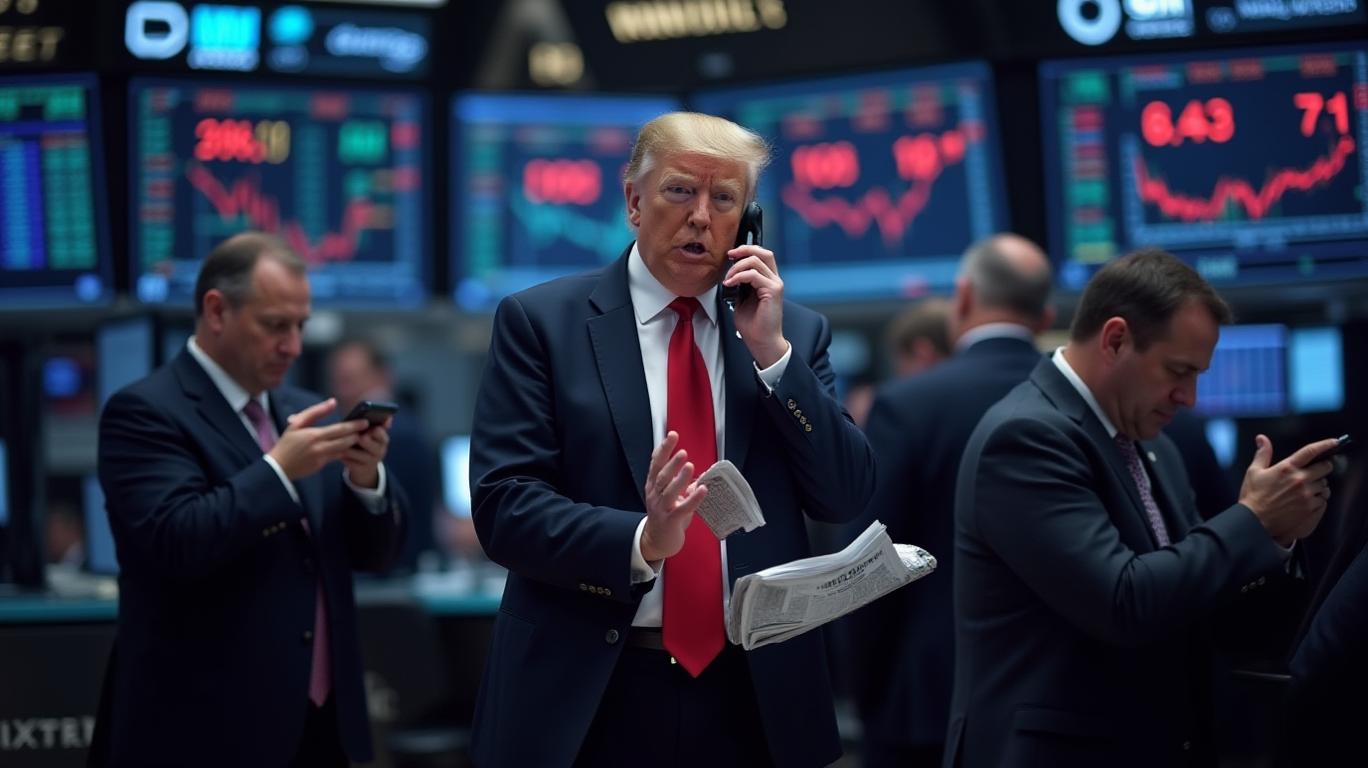Trump's 25% Auto Tariff Proposal Sends GM, Ford Stocks Plunging 7%, 5%
On Wednesday, investors reacted to President Trump's announcement of a proposed 25% tariff on foreign automobiles, leading to a significant decline in the stock prices of major automakers. General Motors' shares dropped by over 7%, while Ford's shares fell by more than 5% in after-hours trading. The tariffs, set to be implemented starting April 2, are part of a broader trade policy aimed at protecting domestic industries and reducing the trade deficit.
Trump's announcement highlighted the administration's intent to impose strict regulations on both the origin of automotive components and the final assembly of vehicles. He stated that if parts are manufactured in the U.S. but the final assembly occurs elsewhere, those parts would not be subject to tariffs. This policy aims to incentivize more domestic production and assembly, potentially reshaping the global supply chains of automakers.
The proposed tariffs have sparked concerns among investors about the potential economic fallout. The automotive sector, which relies heavily on global supply chains, could face significant disruptions if the tariffs are implemented. This uncertainty has led to a sell-off in the stocks of major automakers, as investors brace for the potential impact on earnings and supply chain logistics.
The tariffs are part of a broader trade strategy by the Trump administration, which has already imposed tariffs on a range of goods, including steel, aluminum, and Chinese imports. The administration argues that these measures are necessary to protect American jobs and industries from unfair foreign competition. However, critics contend that the tariffs could lead to retaliatory measures from other countries, potentially escalating a global trade war and harming the U.S. economy.
The automotive industry is particularly vulnerable to trade disruptions, given the complex and interconnected nature of its supply chains. Many automakers rely on components and parts sourced from multiple countries, and any disruption in this supply chain could lead to production delays and increased costs. This, in turn, could affect the profitability of automakers and potentially lead to job losses in the sector.
Investors are also concerned about the potential impact on consumer spending. Automobiles are a significant expense for many households, and higher prices could lead to a reduction in demand. This could have a ripple effect on other sectors of the economy, as reduced consumer spending could lead to lower revenues for businesses and potentially higher unemployment.
The proposed tariffs have also raised questions about the Trump administration's broader trade policy. Some analysts argue that the administration's approach to trade is too confrontational and could lead to long-term damage to U.S. economic relations with other countries. Others contend that the tariffs are a necessary measure to address long-standing trade imbalances and protect American workers.
In response to the proposed tariffs, some automakers have already begun to adjust their supply chains and production strategies. For example, General MotorsGM-- has announced plans to invest in domestic manufacturing facilities and source more components from U.S. suppliers. Ford has also indicated that it may shift some of its production to the United States in response to the tariffs.
However, these adjustments may not be enough to fully mitigate the impact of the tariffs. The automotive industry is highly competitive, and any increase in costs could make U.S. automakers less competitive in the global market. This could lead to a loss of market share and potentially lower profits for automakers.
In conclusion, the proposed tariffs on foreign automobiles have raised significant concerns among investors and industry analysts. While the Trump administration argues that the tariffs are necessary to protect American jobs and industries, critics contend that they could lead to long-term economic damage and harm U.S. relations with other countries. The automotive industry, in particular, is vulnerable to trade disruptions, and any increase in costs could have a ripple effect on other sectors of the economy. As the implementation date for the tariffs approaches, investors will be closely monitoring the situation and adjusting their portfolios accordingly.

Stay ahead with real-time Wall Street scoops.
Latest Articles
Stay ahead of the market.
Get curated U.S. market news, insights and key dates delivered to your inbox.

Comments
No comments yet